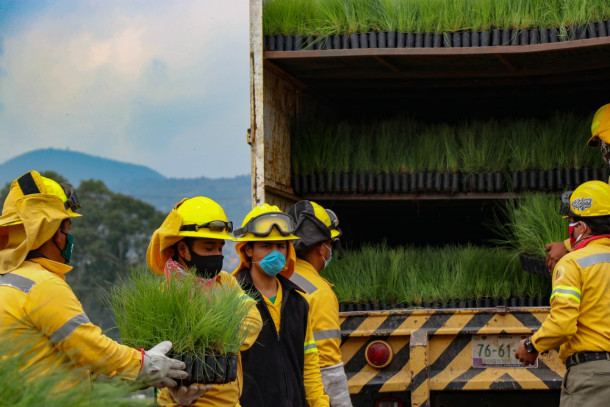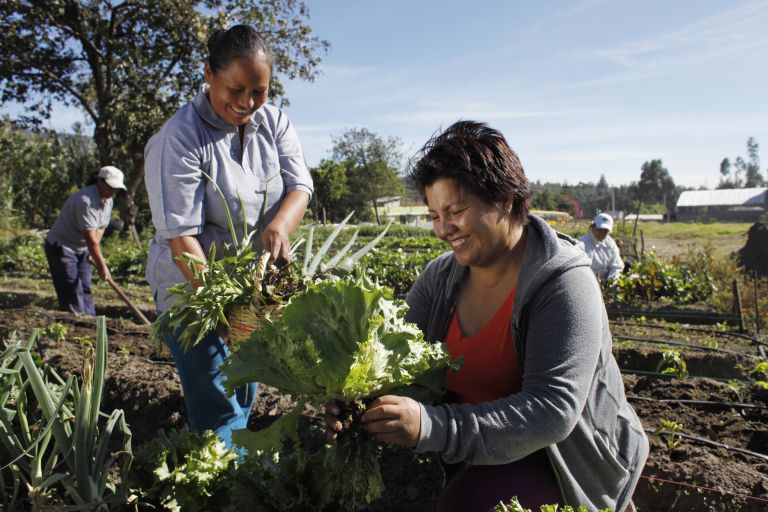
Secretaría del Medio Ambiente (SEDEMA), Ciudad de México
Expanding urban forests for healthier and more inclusive cities
As the latest report by the Intergovernmental Panel on Climate Change (IPCC) shows, sustainable urban planning and infrastructure design, including the management of urban forests, can deliver health benefits such as reduced air pollution. The experience of local and regional governments that are already working on greening urban areas demonstrates that urban forests also mitigate the impact of climate change and improve gender equality on a metropolitan scale.
The direct relationship between urban greening and health benefits is demonstrated by the fact that the metropolitan spaces with the highest rates of green space per inhabitant are also among those with the best air quality. Montréal is one such example, with 19 m2 of green space per inhabitant and an annual mean PM2.5 concentration of 6.9, while Toronto, another example, boasts 32 m2 of green space per inhabitant and an annual mean PM2.5 concentration of 9.5.
That’s why Madrid is planting a 75 km urban forest, covering around 2,300 hectares, with the goal to reduce poor air quality. The project aims to connect the large regional parks in the surrounding area, integrating them in a network of metropolitan green infrastructure that will provide a continuous green space for homes and neighbourhoods. As for Mexico, the city is being regreened through the RetoVerde program. Through this initiative, the Mexico City government has planted 26,557,475 trees, shrubs and plants since 2019, creating greener public spaces and reducing the effects of climate change.
Special consideration should also be given to the gender perspective in each of these public greening initiatives. Gender equality has been improved by giving more weight to everyday life experiences and undervalued activities related to care and in the city, which are often carried out by women. In Quito, for example, 86% of the 140 community gardens and 800 family gardens are led by women, all of them integrated in the urban agriculture program of the Quito Metropolitan District, which aims to decrease social vulnerability and increase quality of life while adapting to the risks posed by climate change.

Municipio del Distrito Metropolitano de Quito
While local or regional governments can have an impact on dwellers’ lives by investing in nature, and urban forests in particular, multilevel collaboration across metropolitan spaces would boost global action to the level required by the climate emergency. Coordinating at a metropolitan scale allows for better integration of food, agriculture, and water systems, a more functional and inclusive area through strengthened urban-rural connections. For example, in the Barcelona metropolitan area, 16 municipalities are working together on the socio-environmental recovery of the Llobregat River, demonstrating the critical role of metropolitan coordination for creating more inclusive and ecologically connected metropolitan spaces.
For that very reason, Metropolis—together with a consortium of 26 partners from Europe and China, including EFI and the IUCN—is using the decentralised cooperation project Clearing House to support governments looking to develop more resilient cities and liveable societies through urban forests as nature-based solutions. An initiative has been launched to promote capacity development and the exchange of knowledge and practices between urban practitioners.
The importance of including children's perspectives in the design of public greening initiatives is also a key part of this project. An inspirational package for teachers and students was created in order to raise awareness on the importance of urban trees and forests in the city planning. The goal is for children and young people to grow up as active dwellers who work to conserve and increase tree coverage in their city.

Drawing by Zeng hanming in the framework of the Metropolis, Through Children's Eyes contest
As greening projects and urban forests are increasingly being integrated into planning practices in metropolitan spaces worldwide, it is crucial to ensure that expansion across neighbouring municipalities accounts for the existing diversity and vulnerability in different areas, while responding to the needs of the people living in them, especially women and children.
You can find more information about how to apply for the Clearing House knowledge exchange initiative here.

